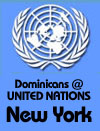| EditRegion2 |
|
||||||||
|
 To open
To open
a PDF
you need Acrobat Reader, Click the icon
follow the prompts. It is free, safe and secure.
Honduras
Sister delegate reports increase in human rights abuse
Honduras has been below the radar screen in U.S. media since the “election” in November 2009. Yet Human Rights Watch has recently issued a report documenting an increase in human rights abuse since the June 28, 2009 coup, as well as almost complete impunity for those who violate human rights. In 2010, the organized resistance in Honduras requested delegations from human rights advocates in other countries. I participated in a delegation of four U.S. citizens and one Canadian Nov. 27–Dec. 4, 2010, sponsored by the Friendship Office of the Americas.
In the mountain community of Guaimaca, we met with representatives from several peasant communities. The communities had taken advantage of a provision of the agricultural reform which allows landless peasants to claim idle arable land. They had been working the land for 18 years, and, before the coup, the process for obtaining documents confirming their title to the land was progressing through government channels. The coup halted the process. When a new putative owner of the entire latifundim (ranch) on which their land is located tried to evict them, they resisted. A few days later, one of their leaders was killed. They continue to be stalked by masked, armed men. This scenario occurs throughout the countryside. In one area, while we were in the country, 17 peasants were killed when they refused to leave their land.
In addition to violent attempts to take land from peasant communities, we heard of increased militarization from every community and organization we visited. The United States has used the Soto Cano (formerly Pamerola) Air Base for decades. Our government is now building two new air bases on the eastern side of Honduras. Peasants and resistance leaders alike told us of a massive military buildup, consisting of United States, Colombian, and Israeli forces.
To me, the most significant indication of human rights crisis in Honduras came from Berta Oliva, co-founder and director of the Committee of the Families of Detainees and Disappeared in Honduras (COFADEH). From her 28-year perspective with COFADEH, Berta told us that “for the first time, I find it necessary to ask for accompaniment for COFADEH itself. For our protection, we need a North American who will stay with us for at least a year, working in our offices, daily.”
In the Jan. 31, 2011, issue of The Nation, Dana Frank, professor of history at the University of California, Santa Cruz, warns us that “Two fanatically right-wing Congress members… now control the Foreign Affairs Committee and the subcommittee on the Western Hemisphere, respectively.” These Congresspersons have placed priority on pushing the Obama administration toward a stronger support of the current Honduran administration of Porfirio Lobo Sosa. We need to keep informed, and let our elected representatives know that we support the nonviolent resistance movement.
For more information, visit:
- “Grave Human Rights Violations Continue in Honduras” (Feb. 10, 2011, Friendship Office of the Americas www.friendshipamericas.org)
- Latin America Working Group
- Human Rights Watch
Pat Chaffee, OP
Racine Dominican





